Today we're proud to announce the availability of device recipes and bulk device creation. We've also released a bunch of other small features and updates based on the awesome feedback you've been giving us.
Device Recipes
A device recipe allows you to define a template that can be used to quickly create similar devices. Recipes can be created and managed through your application settings.
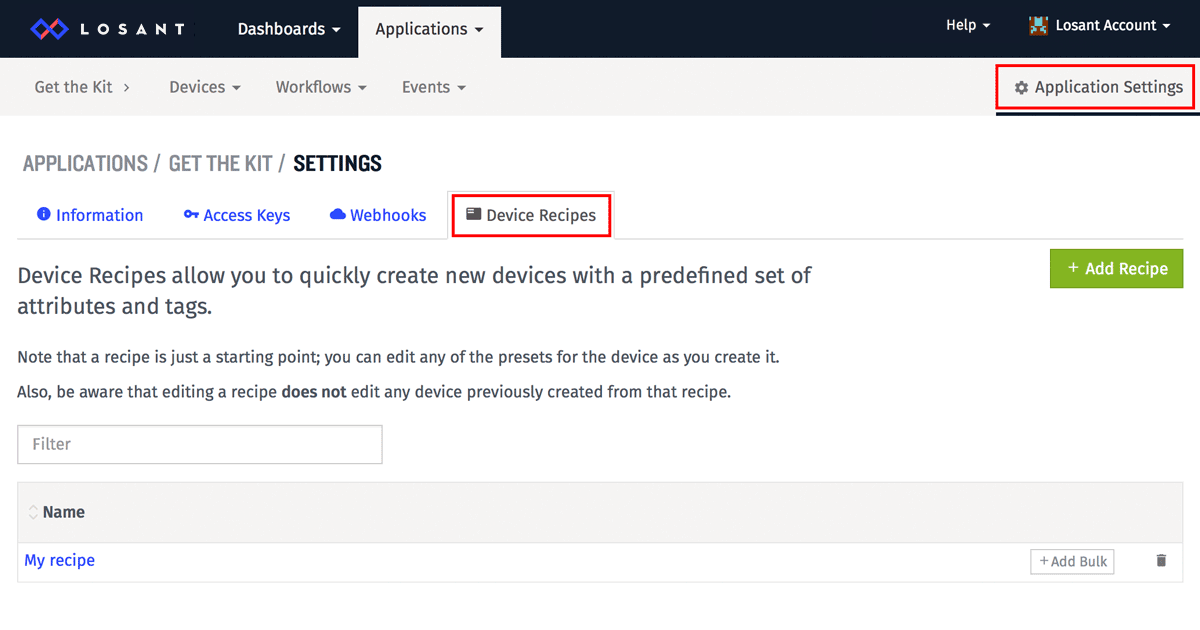
Defining a recipe works exactly like defining a device. When you then create devices from the recipe, all the fields on the device will be pre-populated by the recipe defaults.
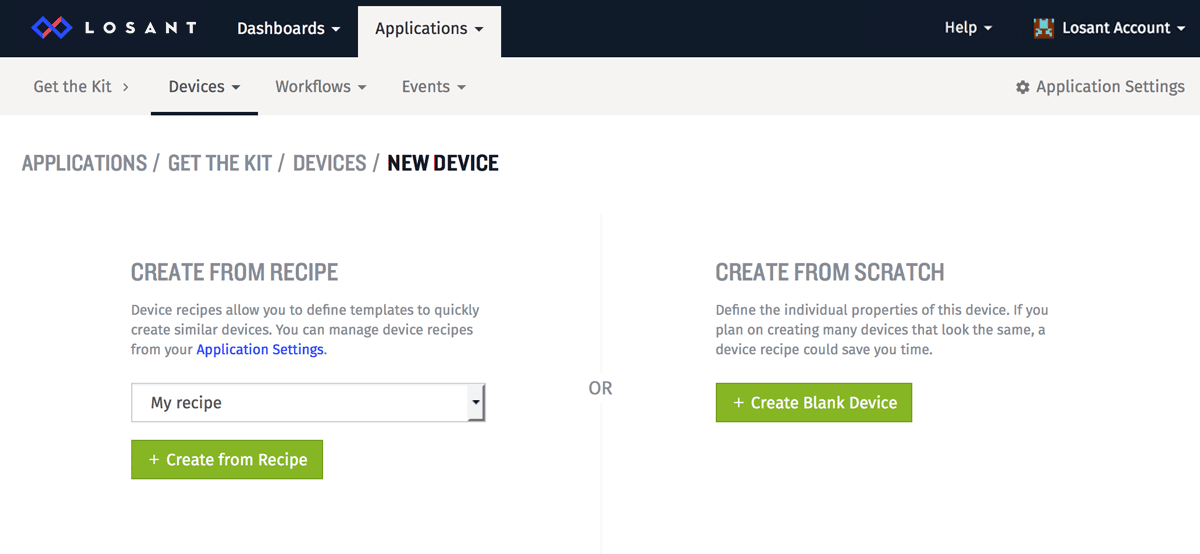
When adding individual devices, you will now be prompted to choose a recipe or add a blank device.
Bulk Device Creation
The real power of device recipes comes when bulk adding hundreds or thousands of similar devices. Early feedback from our users made it clear that adding as few as 10 similar devices was too tedious. Bulk device creation reduces this time to a few seconds.
Start by clicking the Add Bulk button next to the recipe you'd like to use.
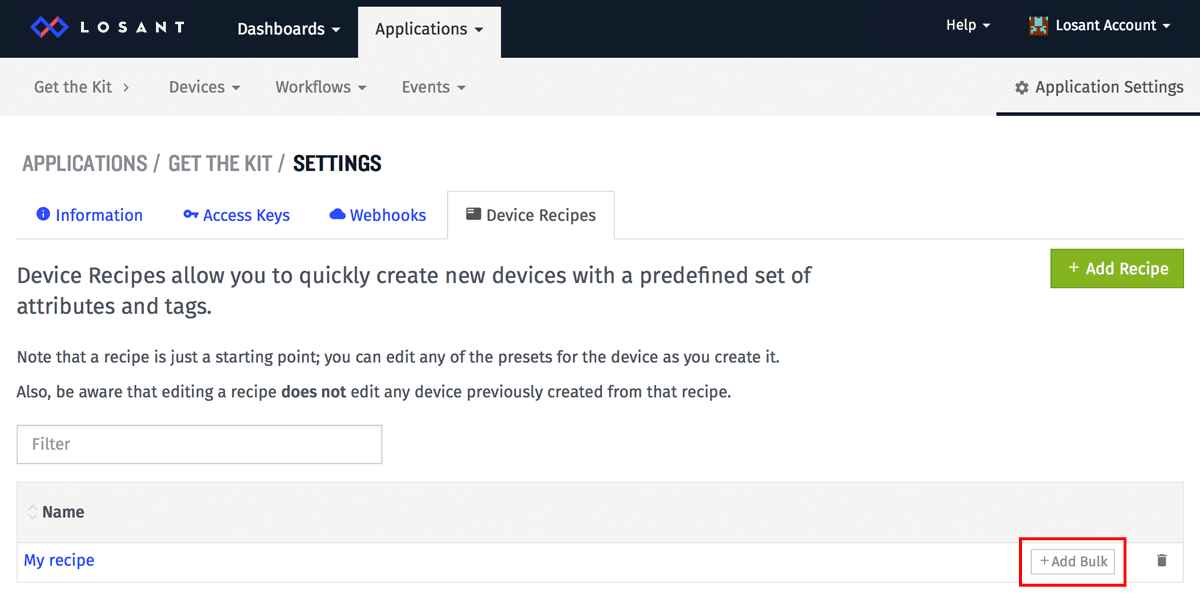
The next screen provides an overview of the recipe and the options for how many devices to create.
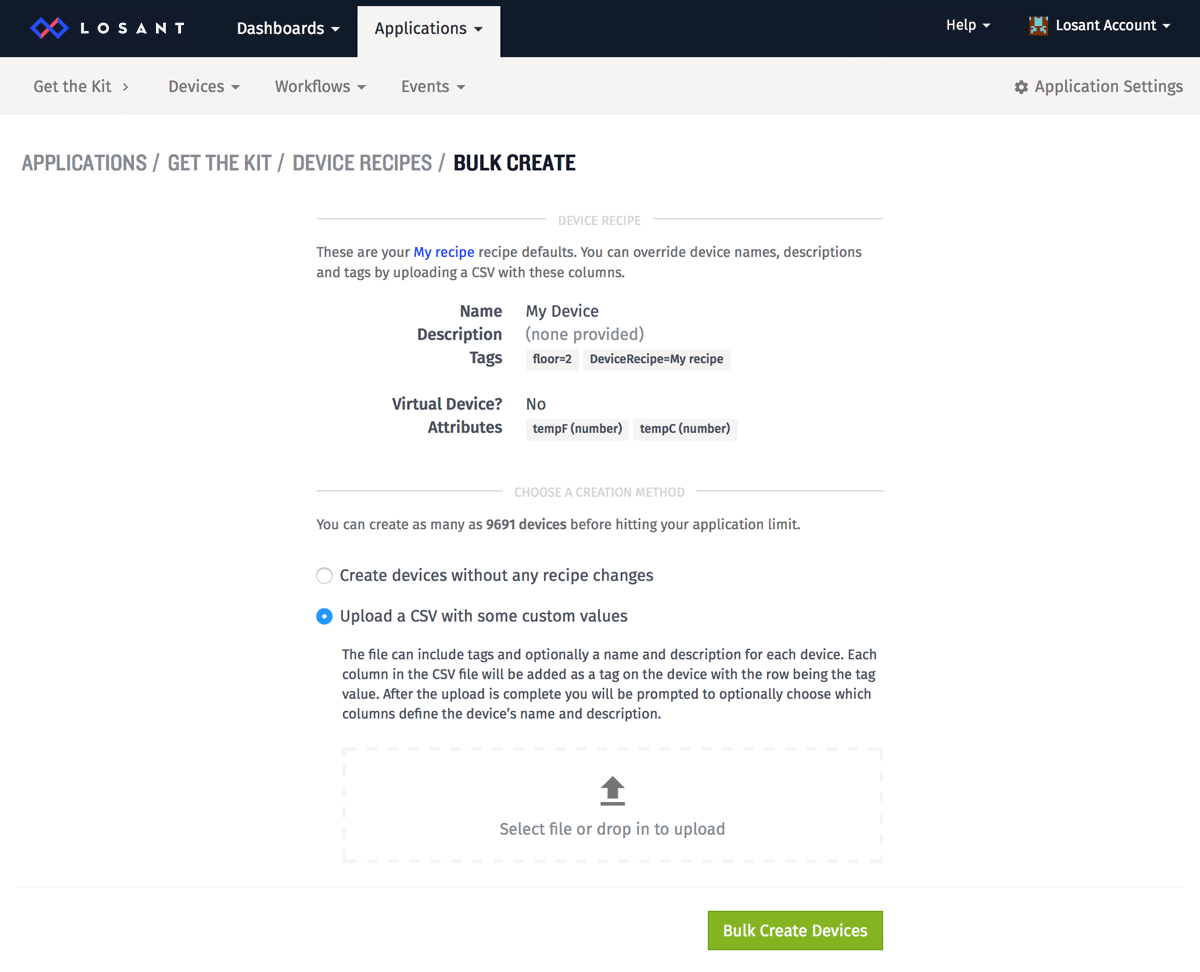
By uploading a CSV, you have a really powerful and easy way to bulk create devices with any number of custom tags. Tags are used to organize devices by any key/value you choose. A common example is to have a column in your CSV file that includes your manufacturer ID. When we create the devices, that ID will then be automatically added as a tag to the device, which allows you to easily identify the device at any later time.
Below is an example of how a CSV maps to the tags when the devices are created.
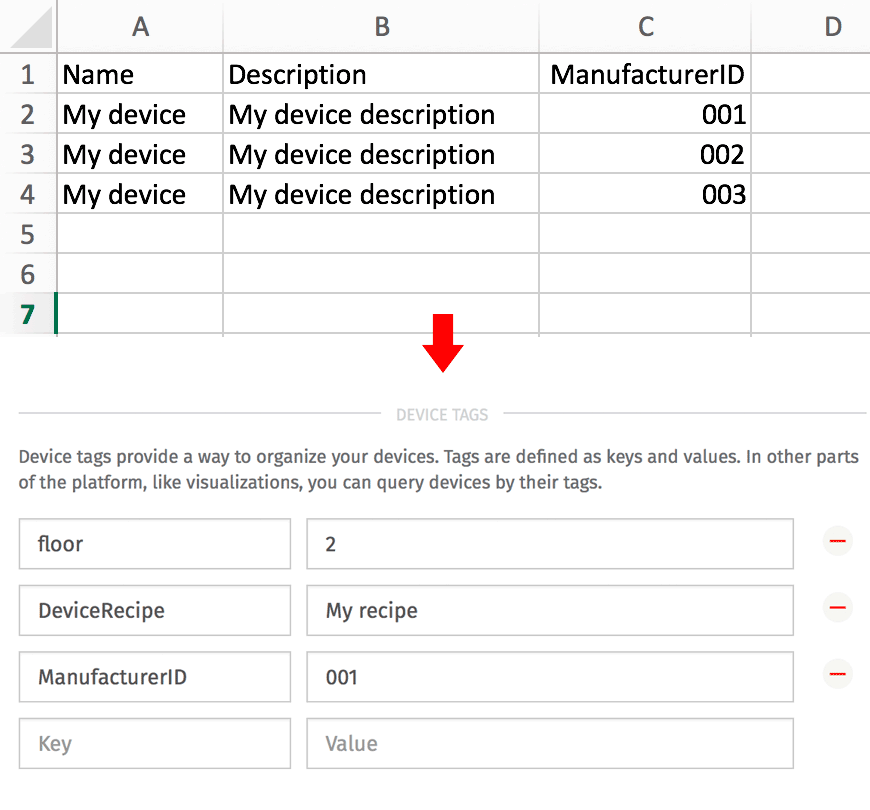
The "Name" and "Description" columns were used as the device's actual name and description. During the bulk creation process, you can optionally choose which columns represent these values. The "floor" attribute comes from the recipe, so all devices created from the recipe will have it defined to whatever was in that recipe - in this case "2". The "DeviceRecipe" tag is automatically added by Losant so you know what recipe was originally used to create this device. All other columns in the CSV file will be converted to tags. In this example, I have a "ManufacturerID" column, which means all devices will get this attribute with the value from their corresponding row. When this is imported I have a total of three devices with three different "ManufacturerID" tag values.
Other Features
We've also release several bug fixes, usability updates, and a few smaller features.
Webhook Tester
You can now test webhooks directly through the Losant dashboard.
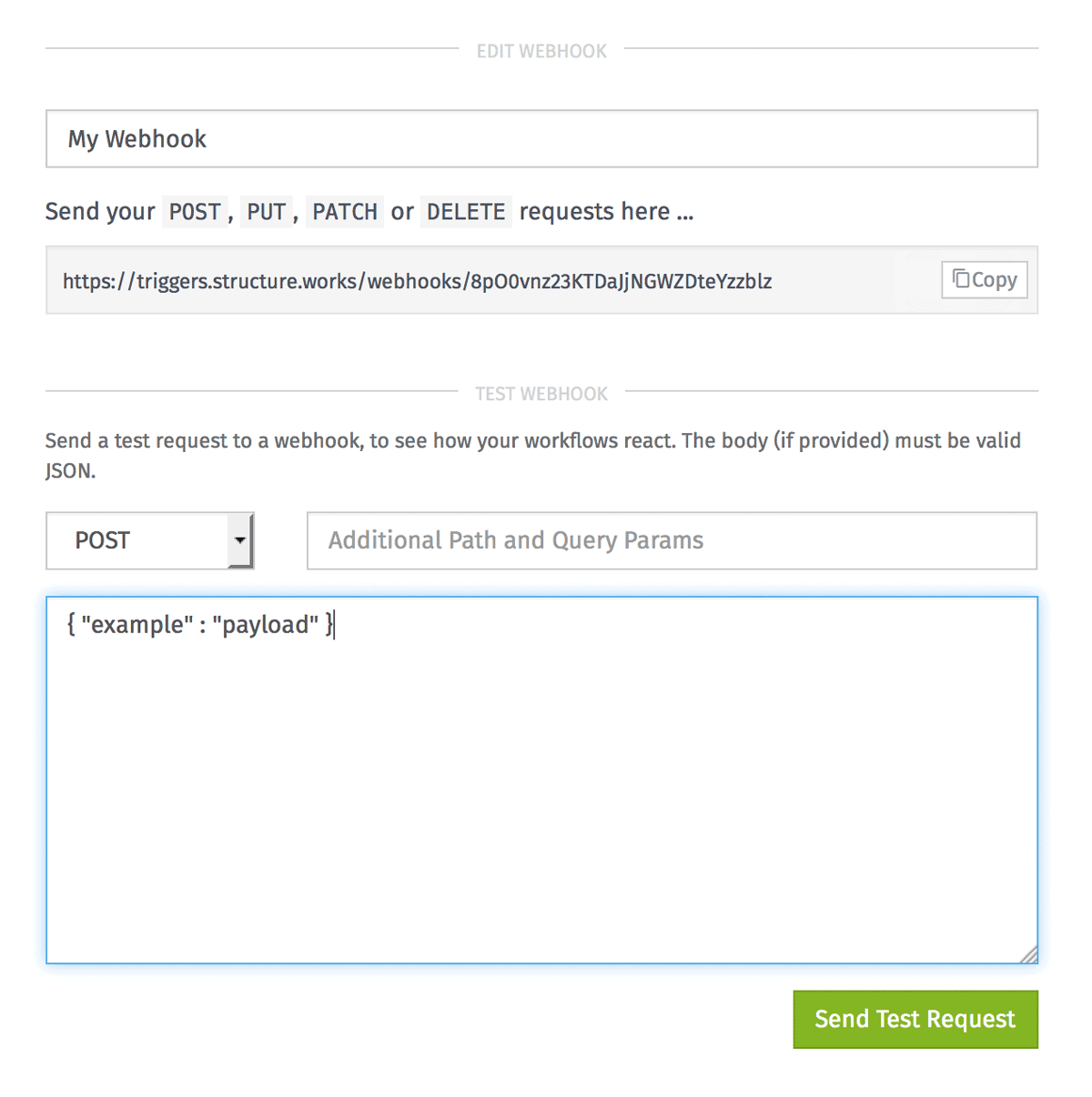
Device Connection Triggers
You can now trigger workflows whenever a device connects to or disconnects from the Losant platform.
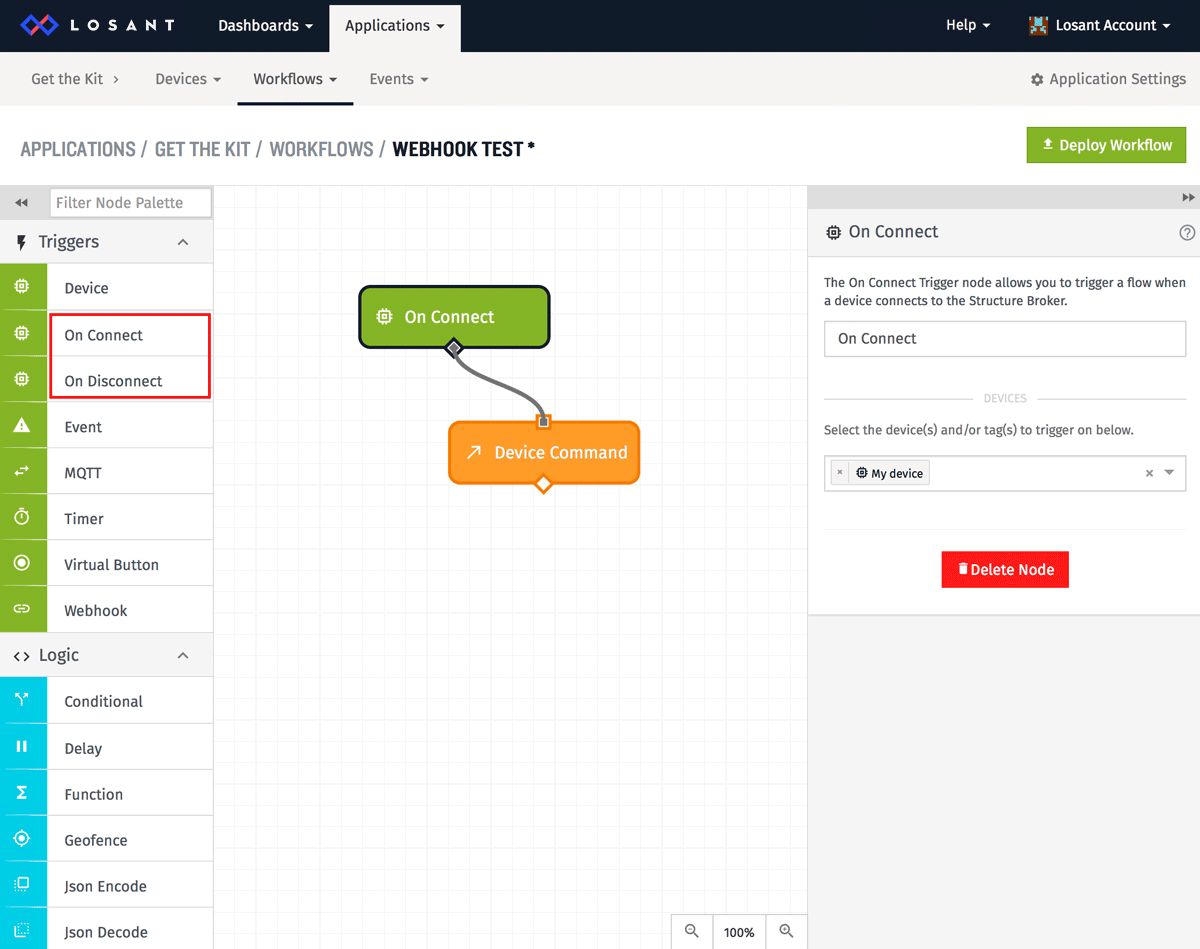
The feedback we've been getting from the community has been great! Please continue posting feature requests to our forums so we know where to spend our time adding the most value for our customers.
